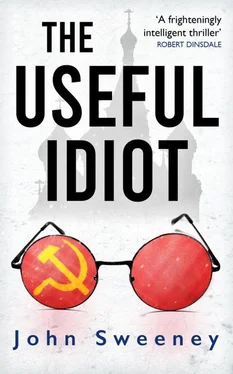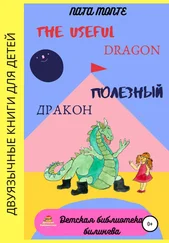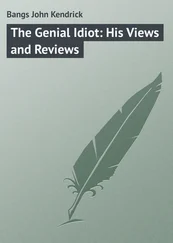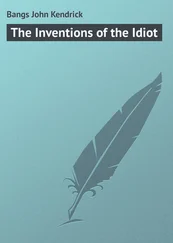John Sweeney - The Useful Idiot
Здесь есть возможность читать онлайн «John Sweeney - The Useful Idiot» весь текст электронной книги совершенно бесплатно (целиком полную версию без сокращений). В некоторых случаях можно слушать аудио, скачать через торрент в формате fb2 и присутствует краткое содержание. Город: London, Год выпуска: 2020, Издательство: Silvertail Books, Жанр: Исторический детектив, Триллер, на английском языке. Описание произведения, (предисловие) а так же отзывы посетителей доступны на портале библиотеки ЛибКат.
- Название:The Useful Idiot
- Автор:
- Издательство:Silvertail Books
- Жанр:
- Год:2020
- Город:London
- ISBN:нет данных
- Рейтинг книги:4 / 5. Голосов: 1
-
Избранное:Добавить в избранное
- Отзывы:
-
Ваша оценка:
- 80
- 1
- 2
- 3
- 4
- 5
The Useful Idiot: краткое содержание, описание и аннотация
Предлагаем к чтению аннотацию, описание, краткое содержание или предисловие (зависит от того, что написал сам автор книги «The Useful Idiot»). Если вы не нашли необходимую информацию о книге — напишите в комментариях, мы постараемся отыскать её.
* * *
The Useful Idiot — читать онлайн бесплатно полную книгу (весь текст) целиком
Ниже представлен текст книги, разбитый по страницам. Система сохранения места последней прочитанной страницы, позволяет с удобством читать онлайн бесплатно книгу «The Useful Idiot», без необходимости каждый раз заново искать на чём Вы остановились. Поставьте закладку, и сможете в любой момент перейти на страницу, на которой закончили чтение.
Интервал:
Закладка:
“Five minutes ago. You’ve got to help him. You’ve got to-”
“Mr Jones, come to the embassy on Monday morning, January 30 th, at ten o’clock sharp. We shall discuss this matter then.”
“For God’s sake, that’s five days away.”
“Mr Jones, Monday morning, January 30 th, at ten o’clock sharp. Don’t be late. Good day to you, sir.” And the line went dead.
Jones hung there, desperately searching his memories – but it was no use; he didn’t know Attercliffe’s address in Kazan, still less had Mrs Attercliffe’s telephone number. There was no way of getting her word.
“Hey, Jonesy, you know this guy, Attercliffe, don’t you?” asked Lyons. “Didn’t I see you with him at the Metropol one time?”
Jones shook his head and hurried for one of the vacant desks. There he sat down in front of his typewriter, inserted two sheets of copy paper and a carbon in the middle, and hammered out a thousand words, setting out all he had seen that day. It was the first honest dispatch he’d written from the Soviet Union and it would be his last. He had had enough.
His last paragraph read:
This is the truth about this show trial. Soviet justice must be seen not to be believed. As far as this reporter is concerned, it stinks to high heaven. In the higher echelons of the Bolshevik party and inside the Kremlin, the term ‘Useful Idiot’ is banded about. It means a Western fellow-traveller who, when confronted with the evidence of his own eyes and ears, looks away. For far too long I have been such a ‘Useful Idiot’, reporting what the Soviet censors want me to write, not what I witness. The truth is that the Soviet Union is a monstrous tyranny where the innocent are framed, where the state tells lies and where hunger is rampant. This useful idiot is one no more. Gareth Jones, Moscow, Western Mail .
Ripping the two sheaves of paper out of his typewriter, he pocketed the under-copy, threw the carbon in the wastepaper bin, folded the original and placed it in an envelope which he sealed. Then he got up from his desk in the press room – only to find Duranty standing there, cigarette in hand.
“You filing copy tonight, Duranty?”
“As always. The New York Times is a hungry beast.”
“Who is the Foreign Ministry censor on watch tonight?”
“Comrade Oumansky.”
Jones asked Duranty whether he wouldn’t mind handing over his copy too at the same time.
“My pleasure,” said Duranty, his eyes on a new translator for a Japanese news service. Jones gave him the original in the sealed envelope.
Oumansky would read it later that evening. He guessed he would get his marching orders to leave the Soviet Union tomorrow morning. Well, so be it. Bowing minimally to Madame Koloshny, Jones headed for the exit. Once outside, he stood on the steps of the House of the Unions, buttoned up his coat, tipped his hat low and breathed in the freezing air.
Since his very first story, the opening of the Lenin Dam, he had been telling lies about the Soviet state. The truth was clear. Skorutto had been tortured to make a false confession. Attercliffe was, could only be, a wronged man. God knows what his poor wife and daughters were going through. To tell his readers the truth, even if he got thrown out of the Soviet Union, was a blessed relief.
Fresh snow had fallen, turning the great drabness into a place of black and white, of cold beauty. A shaft of sunlight tunnelled through the dark grey clouds, igniting the crystals in the snow, making the city all the more beautiful. Trust him, Jones mused to himself, to fall in love with Moscow at the very moment he had written his own letter of resignation.
Something moved to his right and he found himself staring at a woman in a long brown coat on the far side of Theatre Drive. Though she was two hundred yards away from him, he lifted his hat – and, the moment he did that, she held out the flat of her palm, a signal to hold back. Turning on her heels, she started to walk, slowly, away from him, across Revolution Square.
Evgenia.
Chapter Eight
The woman in brown was halfway across the square before Jones followed, picking up his pace. Soon he was pelting across Theatre Drive, provoking roars of anger from the drivers of the droshkies, horse-drawn taxis, as he darted between them.
By the time he reached the square, Evgenia was already at the gates to the Teatralnaya Metro station. She turned to him, the palm of her right hand upright. The message was clear, she wanted him to follow her but not so close that anyone could work out that he was doing so. He did not move an inch as he watched her disappear into Teatralnaya Metro station. Then he walked as slowly as he could bear, looking around him, taking in the sights, the Metropol to the left, the red walls of the Kremlin ahead of him.
The sun disappeared behind thick cloud and the sky began to darken. He passed through the wooden swing-doors of the Metro, but inside there was no sign of her. Perhaps she was down the escalator at platform level. All he needed to get through was ten kopecks for a Metro token – but he didn’t have the correct change and the queue for tickets was, as usual, hideously long. He went up to a particularly well-dressed man, offered him a ten-rouble note for a token, fed the token into the machine and tried to walk down the escalator in the normal way, aching to run but not daring to do so.
No sign of her at the bottom.
Arcing to the left, he scoured the platform. Nothing. Then he hurried across to the other track to see a train coming in. Even here there was no sign. As he searched, in vain, for some sight of her, the train doors opened and a crowd of Muscovites piled out.
He jumped high – and there she was, walking away from the train at the very end of the platform, heading towards the signs for the inter-connected Metro at Revolution Square. She certainly wasn’t making this game easy for him. Making his way along the platform against the flow of the disgorged crowd was not easy, but at least he had a sense of the rules of the game she was playing.
Broad steps led down to the platform, brass statues on either side. He saw her walk slowly past a brass Alsatian dog, rubbing its snout for good luck. Then she stepped to the left as the roar of an incoming train sounded. Bounding down the steps, he too rubbed the dog’s snout for luck, swerved left, and launched himself at the doors just as they were closing.
It was almost too late. Jamming a foot in the door, he tried to force it back open – and, after a lot of cursing and shouting in Russian, the doors relented, sliding back to allow him access within. As they closed again and the train took off, the other passengers in the carriage stared at the idiot foreigner. They could tell from his clothes and the stylish design of his “owl” spectacles that he was not Russian.
She wasn’t in his carriage.
At every stop he jumped out of one carriage and walked casually into the next, not daring to do more lest the train doors close on him. Finally, there she was: brown fur hat, brown coat, black boots, sitting down at the far end of the carriage, reading a book, “The Idiot” by Dostoevsky. She lifted her gaze, stared at him and, almost imperceptibly, shook her head, compelling him to stay where he was. At the next stop, Elektrozavodskaya, she got off the train and walked across to the opposite platform. Following her path, he kept a good fifty feet away from her. She got out at Kurskaya; so did he.
He was getting good at the game now, trusting her that she would never completely lose him. She walked slowly out of the Metro station into a pool of light. Thick snow drifted down, softening the hardness of the city. She walked off into the darkness and, after a suitable interval, he followed, stumbling on the rough ground. Some time later, he reached a street corner and feared he was lost – when, to his right, from a basement, he saw a match flare and then die. Heading towards that light, he worked his way around a three-quarters closed door and felt a hand on his chest, drawing him in. The door closed tight shut.
Читать дальшеИнтервал:
Закладка:
Похожие книги на «The Useful Idiot»
Представляем Вашему вниманию похожие книги на «The Useful Idiot» списком для выбора. Мы отобрали схожую по названию и смыслу литературу в надежде предоставить читателям больше вариантов отыскать новые, интересные, ещё непрочитанные произведения.
Обсуждение, отзывы о книге «The Useful Idiot» и просто собственные мнения читателей. Оставьте ваши комментарии, напишите, что Вы думаете о произведении, его смысле или главных героях. Укажите что конкретно понравилось, а что нет, и почему Вы так считаете.












